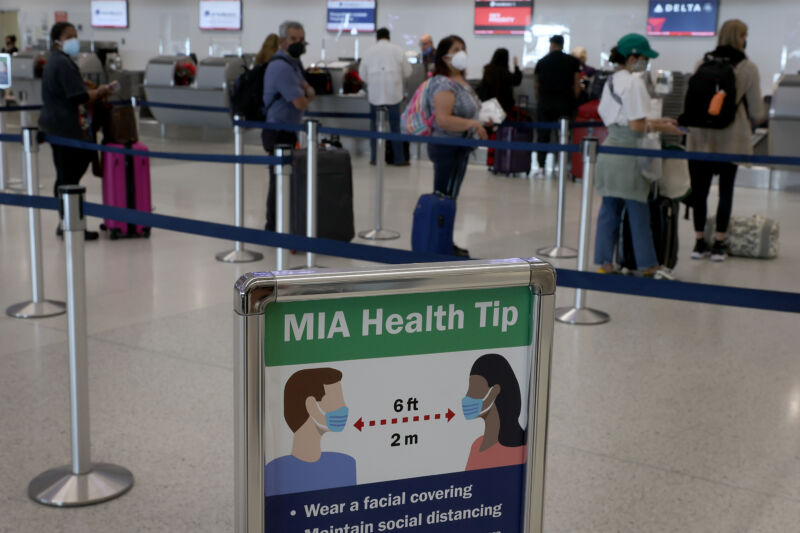
A federal judge in Florida struck down the mask mandate for public transit and travel hubs.
When Americans are returning to pre-pandemic travel levels and when cases of the omicron subvariant BA.2 have begun to tick upward, passenger requirements are thrown into tumult.
The Department of Justice is not sure if they will appeal the judge's order or seek a stay to keep the mandate in place. According to the latest reports, administration officials confirmed that the mandate is no longer in place, but the CDC still recommends the use of masks on public transit. The next steps are being reviewed by the administration.
The ruling came from the Federal District Judge who axed the mandate because of a case brought by the Health Freedom Defense Fund and two Florida residents. The residents said the federal mask mandate made them more anxious.
The agency also violated administrative procedures in implementing the law because it extended the mandate until May 3. She declared the mandate to be illegal and gave it up.
Similar cases have failed many times to take down the federal mandate, including cases that reached the level of the Supreme Court. There is also a controversial history of Mizelle. She was appointed to her position in 2020 despite the American Bar Association deeming her not qualified to be a district court judge. Nominees to a federal bench should have at least 12 years of experience practicing law, according to the ABA. At the time of her nomination, she had only been a lawyer for eight years, and she hadn't tried a single case as lead or co-counsel. She was confirmed as a district court judge.
AdvertisementThe definition of "sanitation" from the 1940s was the basis of the 59-page ruling that single-handedly removed the federal mandate.
The Public Health Services Act of 1944 was used by the CDC to issue the mask mandate. For purposes of carrying out and enforcing such regulations, the CDC may provide for such inspection, fumigation, disinfection, sanitation, pest eradication, destruction of animals or articles to be so contaminated as to be.
The CDC has defined masking as the promotion of hygiene and prevention of disease. She pointed out that the New Standard Dictionary defined Sanitation as the removal or neutralization of elements injurious to health.
She wrote that the PHSA's context indicates that measures that clean something are not those that keep it clean. She argued that wearing a mask doesn't clean anything. The person wearing the mask is notsanitizes the conveyance.
Despite the obvious counter-argument that a mask cleans exhaled air by trapping and thus removing virus injurious droplets to health, she concludes that the mask mandate falls outside the scope of the PHSA.
The second part of her argument focused on the fact that the CDC skipped a 30-day public comment period before instituting the travel mask mandate. If the CDC feels it has good cause, it can skip the 30-day period if it's in an emergency situation.
AdvertisementThe CDC cited a global Pandemic that has killed nearly a million Americans as a good cause.
The CDC's written justification for skipping the period was too brief and she was not happy about it. The Centers for Medicare and Medicaid Services wrote a four-page explanation of its "good cause" after skipping the comment period before mandating COVID-19 vaccines for staff.
The CDC justified its truncated timelines with a single sentence, saying that the pandemic was a good cause. Even though she didn't think the agency was right, she wanted receipts.
The Court accepts the CDC&s policy determination that requiring masks will limit COVID-19 transmission and will decrease the serious illnesses and death that COVID-19 occasions, but it is not enough to establish good cause.
She wrote that regardless of whether the CDC made a good or accurate decision, it needed to explain why it acted as it did.
The mandate exceeded the CDC's statutory authority, improperly invoked the good cause exception to notice and comment rulemaking, and failed.